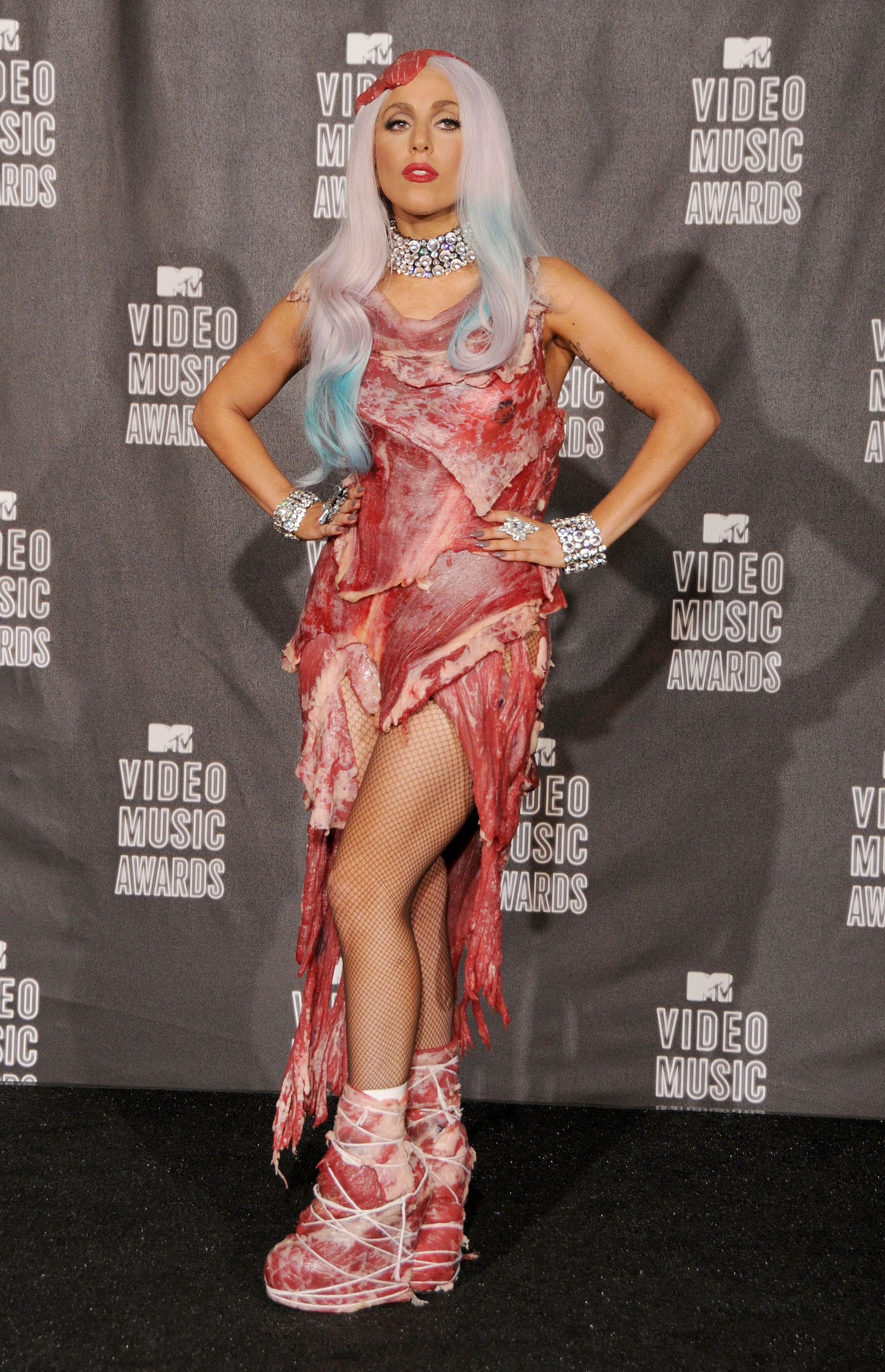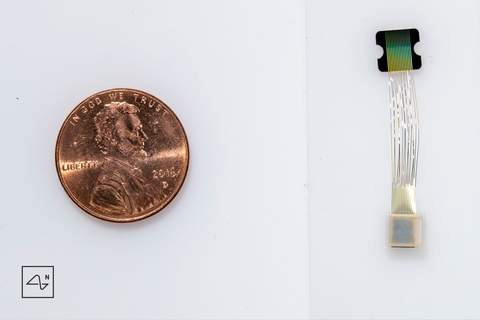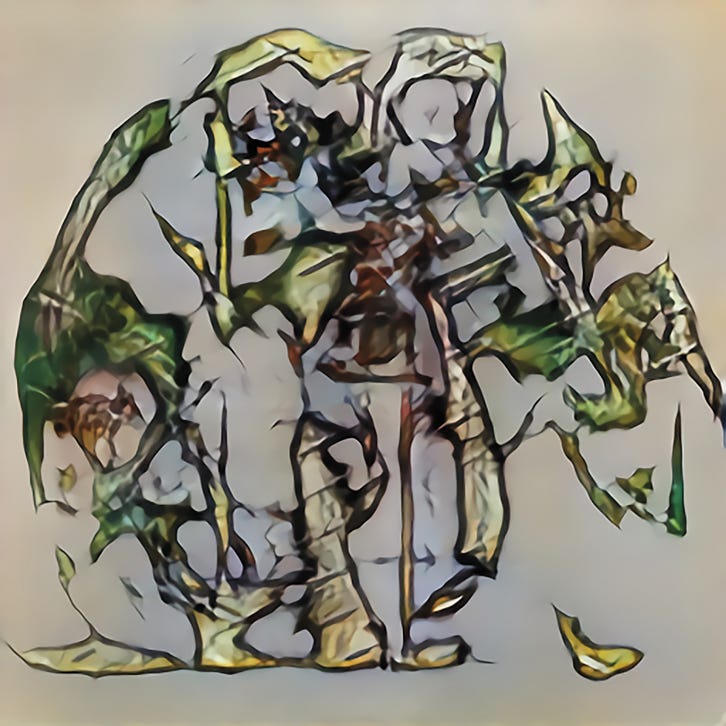
In an essay from science fiction author, Terry Bisson, two aliens discuss the disappointment of meeting humans for the first time only to find that They're Made out of Meat:
"They're made out of meat."
"Meat?"
"Meat. They're made out of meat."
"Meat?"
"There's no doubt about it. We picked several from different parts of the planet, took them aboard our recon vessels, probed them all the way through. They're completely meat."
During a recent podcast with @karaswisher, Elon Musk referenced the essay before explaining how he plans to turn us into more than just meat. His latest paradigm-changing company, Neuralink, is building devices that interface with the brain to expand our human abilities.
Swisher asked him to explain what that all means, "in the dumbest possible way for me," and this was Musk's response:
"...think of it like a FitBit in your skull. Or an apple watch in your skull. So we take out a section of skull, we replace that with the chip and the inductive charger and Bluetooth antenna, and it’s really quite, almost quite literally like, a FitBit in your skull. With tiny wires that go into your brain."

It appears that the initial application of the Neuralink will be to transmit signals from brain activity to an external device. For example, a quadriplegic will be able to control a mobile device, mouse or keyboard with their mind.
Future application will see two-way communication between brain and device(s). Instead of just sending signals that control a device, the brain could received information that would enhance its capabilities. Imagine instant access to every piece of historical data or access to quantum computations on the fly.
Musk's goal is to create a “symbiosis with artificial intelligence” that will boost human cognition. It's his solution to the threat of being left behind in an AI-enabled world. What do you think, good idea?
It's easy to imagine the upside. Quadriplegics with seamless access to the digital world. Blind people with improved / restored vision. The deaf hear. The lame walk. Musk, the modern day miracle worker.
A world without limitations is incredibly appealing at first blush. But some have famously argued in favour of limitation.
“The more a person limits himself, the more resourceful he becomes.”
- Søren Kierkegaard
There are countless examples of people who's triumph came because of limitation, not just despite it. I particularly like the examples where constraints led to amazing creativity in this post from Buffer.
Is the celebration of constraint just stoic response to an outdated reality? Would any sane person actually choose limitation if there was a viable option of limitlessness?Perhaps that's the point. Choice. Some want to throw off every shackle and be able to think through the quantum calculations for an exodus to Mars. While others see the creative exploration of a world with limitations to be limitless in itself.
Herein lies the rub. If some people upgrade, will you have the choice not to?
Consider two political writers applying for a job to cover the next US election. Both have an Ivy League education, are well-versed in current issues and have the artist's way with words. However, one of them also has instant recall of every line in the constitution, every amendment, and every word of every ruling from the Supreme Court. Beyond hard data, she is also able to synoptically analyse commentary from every politician and every pulitzer prize-winning journalist on the fly. Oh, did I mention that she also real-time matches every line she writes against Google keyword search trends and Facebook demographic data giving her a reliable indication of the size of audience the article will reach in each swing state. Who gets the job?
Consider STEM jobs, currently growing at almost double the rate of other jobs. How will a standard-issue human, relying only on the brain's limbic and cortical systems, compete against someone who has added a third system of digital superintelligence? Do you want someone who can write code or someone who can communicate with any device in any language?
Homo Sapiens vs Homo Artificialis.
Of course, human creativity is the bastion that protects the arts from machines. Right?
For now, the music from AI is still a little weird.
But human-AI art collaborations are a happening thing.

Writing articles, essays, and even poetry, seems to be fertile ground for AI exploration. Looping back to Elon Musk, here's a verse from a poem about him that was written by the GPT-3 AI engine:
The SEC said, “Musk,
your tweets are a blight.
They really could cost you your job,
if you don’t stop
all this tweeting at night.”
Note that GPT-3 independently identified the feud between Musk and the SEC, then created a [crude] poem that threw shade on his tweeting habits. The answer is yes. Machines can be creative.
Losing the race is one thing. Losing your mind is another entirely. How will an enhanced and connected human be protected from hackers and privacy breaches. What about ransomware attacks - hackers locking people out of their networks and demanding big payments to get back in?
Research suggests a business is attacked by a cybercriminal every 11 seconds and damage costs from these attacks will exceed $20 billion by 2021. Corporations are ill-prepared for this existential threat, and generally resort to paying the ransom. Will we fare any better?
Imagine waking up one morning, and as you're going through your usual routine you see a message superimposed on your field of vision:
"We have encrypted all of your memories. To access them again, transfer $40,000 in bitcoin to this account: 3J98t1WpEZ73CNmQviecrnyiWrnqRhWNLy
You have 72 hours to comply before we permanently corrupt your data."
You feel normal, but they're right. You can't access your memories. You know you had lunch with your best friend yesterday, but when you try to remember any of the detail, you hit a complete blank. Every other memory is the same - you know it's there, but you can't open it up. Do you pay the ransom?
Of course, the ultimate defense to a cyberattack is to use an air gapped computer - one that has no connection to the internet or any other network so a hacker can't remotely access it. Sure, it's the safest option, but having a Neuralink that isn't connected is like having a mobile phone that doesn't make calls, can't download apps and won't connect to the internet. Useless.
Human enhancement is a slippery slope. And we can't rely on the upgrade cowboys to cover all of the bases while they're busy staking claims on the wild west.
I'm not suggesting anyone will ever be forced to upgrade. But as the acceleration of technology continues to escalate, so too will the gap between Sapien and Artificialis. We won't see much change at first, and then it will come like a flood. Just as Roy Amara predicted in the 1960s, “we overestimate the impact of technology in the short-term and underestimate the effect in the long run.”
I think it's likely that the un-enhanced will find themselves having more in common with the Amish than their transcendent brothers and sisters. If it plays out that way, you'll be able to find me at the next barn raising.
If you'd like to see more of what I'm exploring, you can follow me on twitter. If you've come across something you think I'd like, hit reply and let me know why it's worth checking out (articles, lectures, podcasts, books, exhibitions… whatever).



